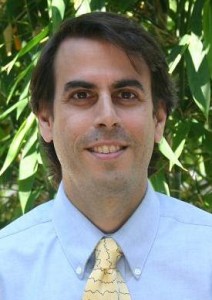 Recently, The Caregivers Voice (TCV) had the opportunity to interview Dr. Michael Rafii, MD, PhD about the Alzheimer’s Disease Cooperative Study’s (ADCS) emphasis on early detection.
Recently, The Caregivers Voice (TCV) had the opportunity to interview Dr. Michael Rafii, MD, PhD about the Alzheimer’s Disease Cooperative Study’s (ADCS) emphasis on early detection.
TCV: How much do the stresses of coping in today’s world (for example, hundreds or thousands of times more information coming at us daily and economic woes persisting; versus years ago, when we were lucky to get five pieces of mail a week and the economy was in a growth period) contribute to MCI/dementia?
RAFII: I think that any stressor, physical or emotional, can have a negative effect on cognition, in anyone, if it reaches a certain threshold. The ability of each person to cope with stressors varies, but I believe that having multiple stressors can cause exponential problems on medical and mental health. In addition, patients with cognitive deficits resulting from stroke, neurodegenerative diseases or even congenital brain disorders, will have difficulty performing tasks that they could ordinarily handle when subjected to extreme stress.
I don’t believe that daily stressors contribute to cognitive decline; I think that they exacerbate it, if it already exists.I also think that a small amount of stress is in fact good. That is, stress has been shown to hone the senses, focus attention, and help solidify certain memories associated with the stressful event (Hans Selye wrote a great deal on Eustress and Distress and their physiological ramifications).
TCV: To what degree can we research Alzheimer’s as a singular disease given recent views (and those expressed in Whitehouse & George’s The Myth of Alzheimer’s) that AD is such a complex construct we cannot view it as a whole researchable entity–that it must be broken into pieces?
RAFII: Certainly AD is complex, but I believe that neuroscientific research is on the right track with the amyloid hypothesis. I have been involved in the AD field since 1992 and have seen the slow, but definite march forward in our understanding of the molecular basis of the disease. I agree that the syndrome of dementia is immensely complex, and it is only by “breaking it down into pieces” that we can better understand how it develops.
TCV: How can we encourage cognitively healthy individuals (not labeled “MCI” or “Alzheimer’s”) to participate in studies when many fear two outcomes–one, knowing, when there’s still no cure; and two, known medical information needing to be disclosed in an insurance application?
RAFII: It is a personal choice. Some patients are already deciding to get tested with current technology because of a strong family history, and have seen the burden that is places on caregivers. They want to make financial and legal plans and perhaps make lifestyle changes as well. They might also decide to become pro-active and participate in clinical research.
________________________________
Dr. Michael Rafii, MD, PhD, co-director of the Memory Disorders Clinic at UCSD Perlman Ambulatory Care Center in La Jolla, California and Assistant Professor of  Neurosciences at the University of California, San Diego. He is also the Associate Medical Core Director of the Alzheimer’s Disease Cooperative Study (ADCS) specializing in cognitive disorders, including dementias such as AD.
Neurosciences at the University of California, San Diego. He is also the Associate Medical Core Director of the Alzheimer’s Disease Cooperative Study (ADCS) specializing in cognitive disorders, including dementias such as AD.
For more information [TCV Update 9/20/2022: URL no longer available]
New Alzheimer’s Study Seeks to Find Earliest Clues to Disease Progression
TCV visitor: We welcome your comments and questions.








